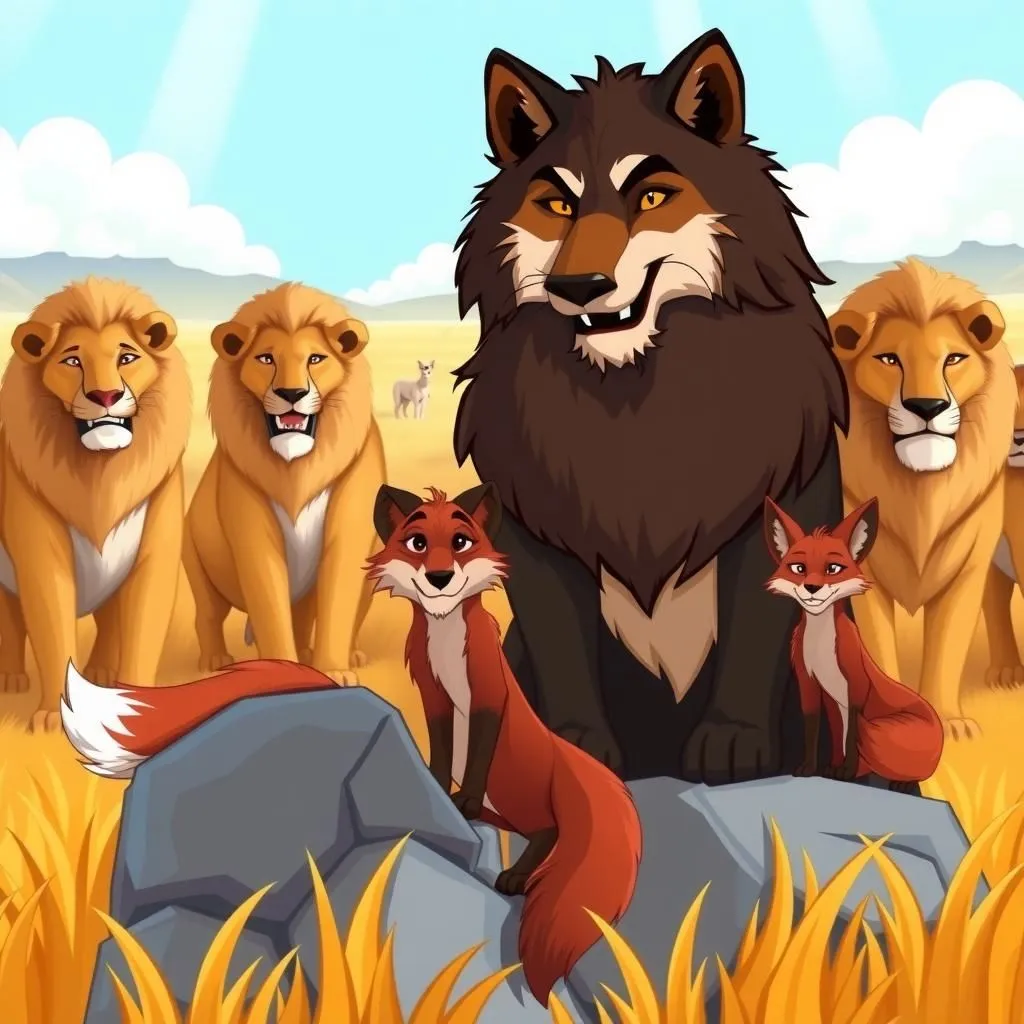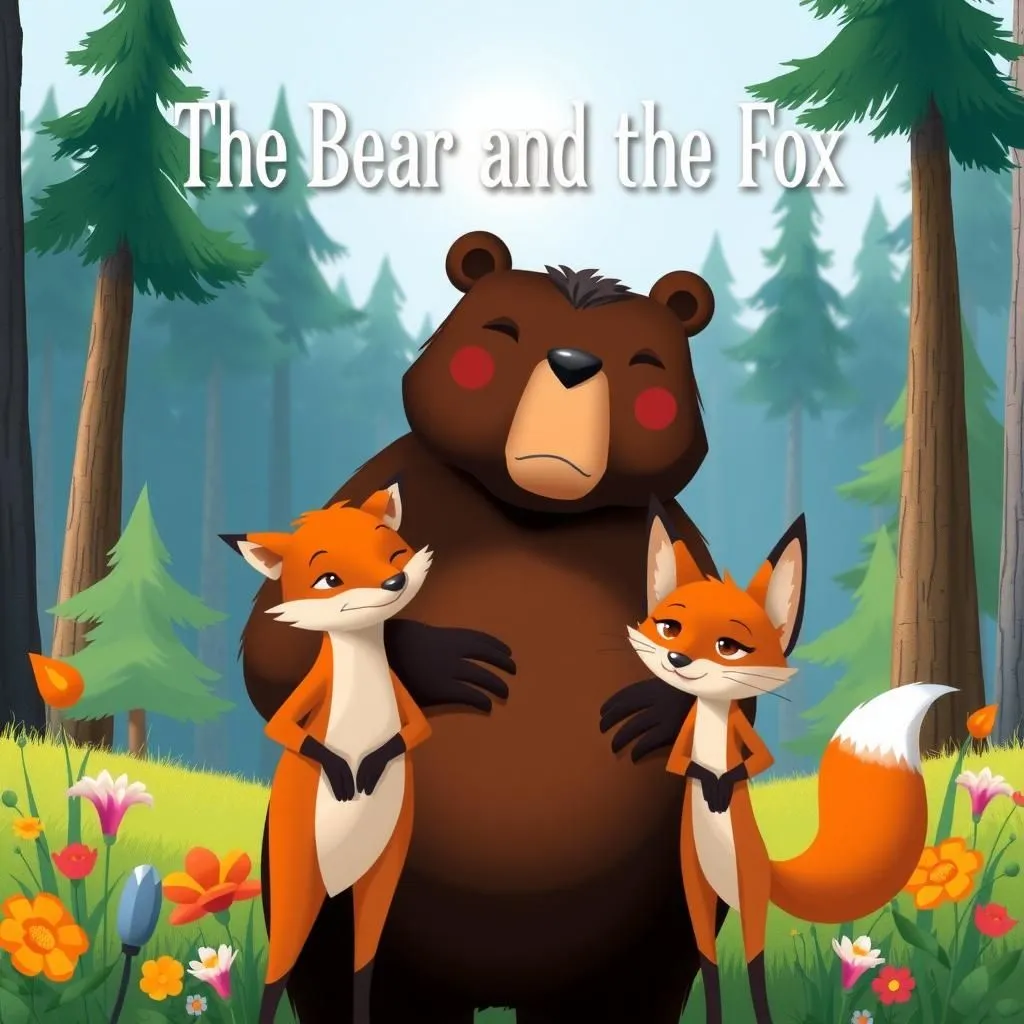
The Wolf and the Fox
In "The Wolf and the Fox," a large and strong Wolf, believing himself honored by his fellow wolves when they call him "Lion," foolishly abandons his kind to live among lions. An observant old Fox comments on the Wolf's pride, pointing out that despite his size, he will always be merely a wolf in a herd of lions. This entertaining moral story serves as a life-changing reminder of the dangers of self-conceit and the importance of recognizing one's true nature in the realm of popular moral stories for adults.


